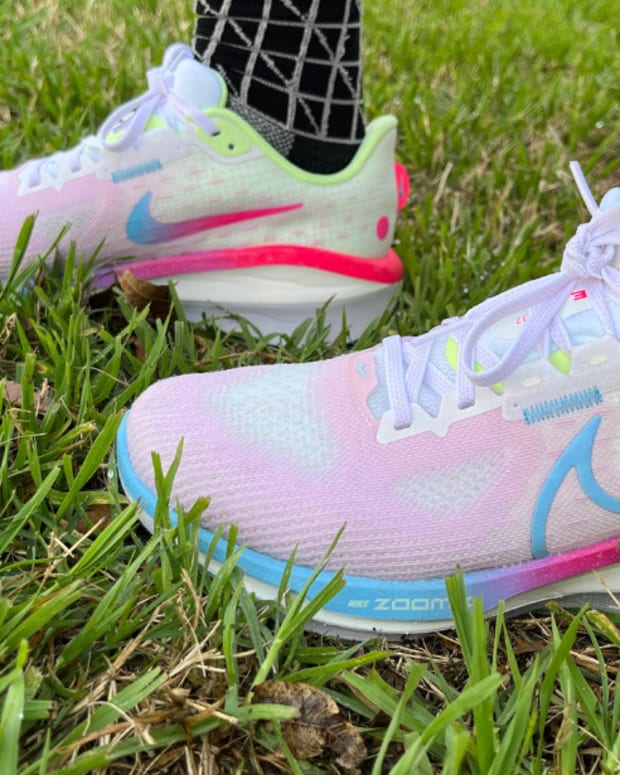The products featured in this article have been independently reviewed. When you buy something through the retail links on this page, we may earn commission at no cost to you, the reader. Sports Illustrated editorial staff are not involved in the creation of this content. Learn more here.
There is no doubt that tomatoes are good for us. They’re low in calories, a fair source of fiber and rich in vitamin C. What you may not know is that tomatoes (and tomato products, like tomato sauce and tomato juice) also contain a powerful antioxidant called lycopene.
As an antioxidant, lycopene can help to support optimal health, improve cardiovascular health and even promote better skin and eye health.
In this article, we’ll review our favorite lycopene supplements of 2024 for cellular health, prostate health, heart health and more. In addition, we’ve interviewed registered dietitian nutritionist Wan Na Chun, MPH, RD, CPT, for her insights on lycopene, how to use it and its potential health benefits.
This content is meant to be informative, but should not be taken as medical advice. It is not intended for use as diagnosis, prevention or treatment of health problems. Always speak with your doctor before starting any new supplement or exercise regimen.
Our Picks for the Best Lycopene Supplement of 2024:
- Best Gluten-Free Lycopene Supplement: 21st Century Lycopene
- Best Lycopene Supplement for Cellular Health: Natural Factors Lycopene
- Best Lycopene Supplement for Prostate Health: Swanson Lycopene
- Best Natural Lycopene Supplement: Jiva Botanicals Lycopene
- Best Lycopene Supplement for Heart Health: Life Extension Mega Lycopene
Best Gluten-Free Lycopene Supplement: 21st Century Lycopene
Key features & specs
- Lycopene per serving: 25 milligrams
- Certifications: Gluten-free, non-GMO
- Subscription: Amazon Subscribe & Save-eligible (5-15% off)
- Best for: People on a tight budget and people who need to follow a gluten-free diet
- Price per serving: $0.16
Lycopene is an antioxidant found in ripe tomatoes and other red foods. Research shows that it may be helpful for heart health, as well as prostate health. Although there are no ideal dosages set for lycopene supplements, this lycopene from 21st Century provides 25 milligrams of lycopene and is also gluten free—making it appropriate for people with a gluten intolerance.
However, this supplement also contains artificial colors and fillers. There are growing concerns that artificial colors, in particular, may be linked to cancer and hyperactivity.
Still, reviewers like this product because it’s less expensive than other lycopene supplements that contain similar amounts of lycopene.
According to 21st Century, you should take one tablet daily with a meal.
What we like:
- Gluten-free
- Inexpensive
- Highly rated on Amazon
What to consider:
- Contains artificial colors
Best Lycopene Supplement for Cellular Health: Natural Factors Lycopene
Key features & specs
- Lycopene per serving: 10 milligrams
- Certifications: Non-GMO
- Subscription: Amazon Subscribe & Save-eligible (5-15% off)
- Best for: People who want to optimize their cellular health and people who don’t eat a lot of red or pink-hued fruits or vegetables
- Price per serving: $0.29
As an antioxidant, lycopene helps to prevent oxidative stress. This is a unique type of cellular stress caused by a build-up of free radical compounds in your cells, which over time could contribute to poor health and chronic disease. Antioxidants, as the title suggests, can neutralize or “scavenge” free radicals to help stop oxidative stress.
This supplement provides 10 milligrams of lycopene, which is less than some other brands. However, it may be helpful if you don’t eat a lot of pink or red fruits and vegetables.
Reviewers also rate it highly and say that the small softgel is easy to take.
According to Natural Factors, you can take up to two softgels per day with meals.
What we like:
- Good reviews on Amazon
- Small, easy-to-swallow softgel
- Non-GMO
What to consider:
- Smaller dose of lycopene than other brands
Best Lycopene Supplement for Prostate Health: Swanson Lycopene
Key features & specs
- Lycopene per serving: 20 milligrams
- Certifications: N/A
- Subscription: Amazon Subscribe & Save-eligible (5-15% off)
- Best for: Older men, including men with prostate health concerns
- Price per serving: $0.18
One of the most common uses of lycopene supplements is for prostate health. It’s thought that lycopene supplementation could help to reduce prostate specific antigen, which helps to reduce risk of prostate cancer. However, most randomized controlled trials on lycopene and prostate health have yielded inconclusive results.
Still, lycopene doesn’t appear to be harmful for prostate health, either. This lycopene supplement from Swanson contains 20 milligrams per serving, and it has mostly positive reviews on Amazon.
You should take one softgel daily with water.
What we like:
- Provides 20 milligrams of lycopene per serving
- Good reviews on Amazon
- Moderately priced
What to consider:
- Evidence on effectiveness for prostate health is lacking
Best Natural Lycopene Supplement: Jiva Botanicals Lycopene
Key features & specs
- Lycopene per serving: 30 milligrams
- Certifications: N/A
- Subscription: Amazon Subscribe & Save-eligible (5-15% off)
- Best for: People who want high-dose lycopene and people who want to limit unnecessary ingredients in their supplements
- Price per serving: $0.34
If you prefer supplements made with simple, minimal ingredients, then you’ll like this lycopene supplement from Jiva Botanicals. It contains only two ingredients: lycopene and hypromellose, which helps form the capsule. Additionally, the lycopene in this supplement comes from natural tomato extract instead of being a lab-made version.
In a 2023 study in The Journal of Cosmetic Dermatology on lycopene from tomato extract, researchers noted that it could help improve skin appearance and strengthen the skin barrier.
This supplement is more expensive than other lycopene supplements, but it does contain a higher dose of lycopene: 30 milligrams compared to the standard 15–20 milligrams.
You should take one capsule per day with a meal.
What we like:
- Higher dosage of lycopene than most other supplements
- Made with simple ingredients
- Contains lycopene from tomato extract
What to consider:
- More expensive than other lycopene supplements
Best Lycopene Supplement for Heart Health: Life Extension Mega Lycopene
Key features & specs
- Lycopene per serving: 15 milligrams
- Certifications: Non-GMO
- Subscription: Amazon Subscribe & Save-eligible (5-15% off)
- Best for: People concerned with boosting heart health and people who prefer non-GMO products
- Price per serving: $0.27
According to several studies, lycopene may be beneficial for heart health. A proposed dosage that supports the prevention of heart disease is anywhere from 2 to 20 milligrams per day, and researchers have noted reductions in blood pressure with supplementation of 15 milligrams of lycopene per day.
This product from Life Extension contains 15 milligrams, making it an ideal choice to support heart health. Additionally, reviewers rate it highly, with many saying that it does seem to make a difference for their overall health. Still, it’s more expensive than comparable lycopene supplements.
According to Life Extension, you should take one capsule daily with food.
What we like:
- Non-GMO
- Evidence-based dosage for heart health
- Highly rated by Amazon reviewers
What to consider:
- More expensive than comparable lycopene supplements
What Is The Best Source of Lycopene?
Lycopene is a carotenoid antioxidant that provides the pigment in many red and pink fruits and vegetables. “It’s particularly abundant in tomatoes and tomato products,” says Wan Na Chun, MPH, RD, CPT, dietitian at One Pot Wellness. “Other good sources of lycopene include watermelon, red orange, pink grapefruit, apricot, rose hip and guava,” she says.
Carotenoids are a class of antioxidants found in red, orange and pink fruits and vegetables. Some, like beta-carotene, can be converted into vitamin A in the body. However, lycopene—along with lutein and zeaxanthin—does not convert to vitamin A. Instead, the body is able to use it as-is.
Related Post: The Best Fruit and Vegetable Supplements to Add More Nutrients to Your Diet
Benefits of Lycopene Supplements
There are many potential benefits of lycopene supplements, including heart health, prostate health and eye health.
“Lycopene is a potent antioxidant,” says Chun. Many of the potential benefits of lycopene stem from its antioxidant properties. As an antioxidant, it helps to promote optimal cellular functioning. Research has shown that this could be helpful for concerns from heart disease to wrinkles.
Lycopene has also been shown to help reduce blood pressure and improve cholesterol levels. “It may also help reduce the risk of developing heart disease,” says Chun.
One of the most common reasons people may use lycopene is to help with prostate cancer prevention. It’s thought that the supplement may help to reduce prostate specific antigen levels in men who are at high risk of prostate cancer development.
Unfortunately, though, researchers have found that studies on prostate health and lycopene often have mixed results—making it difficult to draw firm conclusions. Still, it’s thought that the antioxidant activity of lycopene shouldn’t cause any harm to this group.
“Additionally,” adds Chun, “lycopene may prevent or delay the formation of cataracts and reduce risk of macular degeneration, the leading cause of blindness in older adults.”
Related Post: The Best Diets for Heart Health
Side Effects of Lycopene
Lycopene supplements appear to be mostly safe.
“There are not currently any known side effects associated with lycopene supplements,” says Chun, “However, high levels of lycopene may not be suitable for people with low blood pressure, people with stomach ulcers and pregnant or breastfeeding women.”
Who Should Use Lycopene
According to current research, lycopene may be best suited for people who are hoping to reduce their blood pressure levels, increase their HDL cholesterol levels or boost antioxidant activity in their cells.
Although lycopene is commonly used for prostate health, strong evidence is lacking, so you may want to speak with your doctor before taking lycopene for prostate cancer prevention.
Who Shouldn’t Use Lycopene
Some people should exercise caution with lycopene. “Lycopene supplements may not be suited to everyone,” explains Chun, “and do not always offer the same benefits as lycopene from food sources.”
“Pregnant or breastfeeding women, people with low blood pressure and those who are sensitive or allergic to tomatoes should consult with a healthcare provider before taking lycopene supplements,” she concludes.
How to Choose the Best Lycopene for You
Here are a few things to consider when choosing the best lycopene supplement for you:
- Price: Lycopene supplements range in price from roughly $0.15 to $0.30 per serving—or about $5-$10 per month. Although they are fairly inexpensive, be sure to choose one that fits easily within your budget, especially if you plan to use it long term.
- Ingredients: Some lycopene supplements contain a number of added ingredients, while others contain fewer. If you prefer non-GMO or organic food, you may want to opt for a lycopene supplement that’s free of fillers, preservatives or artificial colors. Note, however, that these options may be more expensive than others.
- Dose: Most lycopene supplements contain 15-20 milligrams of lycopene per serving. Although this appears to be an optimal concentration for heart health, your healthcare provider may be able to give you additional insights about the best dosage to take for your health concerns.
Our Methodology: How We Chose the Best Lycopene
In choosing the best lycopene supplements, we paid careful attention to price and included lycopene supplements at a variety of price points. We also chose supplements that were highly rated, with at least 4/5 stars on Amazon. Finally, we considered the expert insights provided by Chun to help guide our decisions on these lycopene supplements.
Lycopene Supplement FAQs
How much lycopene should you take per day?
There is no standardized or recommended dosage of lycopene. Research suggests that many people eat roughly 10 milligrams per day through food, and that supplements containing two to 20 milligrams per day may be helpful for heart health.
Does lycopene help lower cholesterol?
Lycopene may help to reduce the amount of cholesterol your body absorbs from food. However, more research in humans is needed. Additionally, lycopene may help increase high-density lipoprotein (HDL) cholesterol, the “good” cholesterol.
What is the best way to absorb lycopene?
Lycopene is a carotenoid antioxidant. Like other carotenoids, fat boosts its bioavailability, meaning it may be easier for the body to absorb when consumed with fat. This is why most lycopene supplements also contain oil, and one more reason tomatoes and olive oil are a great combination.
Does lycopene help you lose weight?
Some early research in animals suggests that lycopene may help with weight management. However, more research in humans is needed. Additionally, other lifestyle factors like diet and exercise make a much more significant difference for weight loss than dietary supplements.
Takeaway: Is Lycopene Worth It?
Lycopene is an antioxidant, or a free radical scavenger, found in tomatoes, processed tomato products and other red and pink fruits and veggies. Although it’s always a great idea to get your antioxidants from whole food sources, supplements can be helpful. Research shows lycopene supplements may help boost heart health, eye health and skin health. If you’re not sure whether lycopene would be a good addition to your routine, it’s a good idea to speak with a healthcare professional.
Prices are accurate and items in stock as of publish time.














